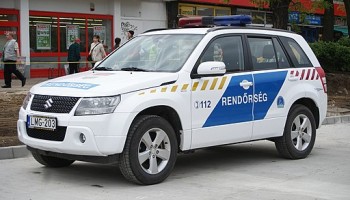In a press conference on Friday, Horváth said that he is risking his personal safety to “take a stand” against the alleged collaboration between Hungary’s National Tax and Customs Administration (NAV) and organized crime groups.
He says that widespread VAT fraud drains hundreds of millions of dollars from the tax, which is supposed to be levied on products as value is added at each stage of production, and then be paid by the end buyer.
Horváth said companies in Hungary and neighboring Eastern European countries have used illegitimate VAT refunds in “carousel transactions” in which conspirators sell goods to each other across borders and fraudulently claim reimbursement from the tax authority for VAT that they never actually paid.
Horváth said such cross-border tax fraud networks are operated by organized criminal groups and that in the food industry alone, more than 100 Hungarian companies have worked with Slovakian, Romanian, Czech, and Slovenian companies to commit tax fraud. He said they have acquired over US$950 million in the past two years.
According to Horváth, corruption took root in the tax authority during management and personnel changes that occurred in 2007. Horváth said NAV personnel today not only fail to supervise large companies and their subcontractors, but also transfer those who try to combat any corruption to positions where they are powerless to investigate. This creates a “join the club or leave the market” business culture, according to Átlátszó.
The investigative center believes the VAT fraud deprives the government of between five and six percent of annual GDP.





